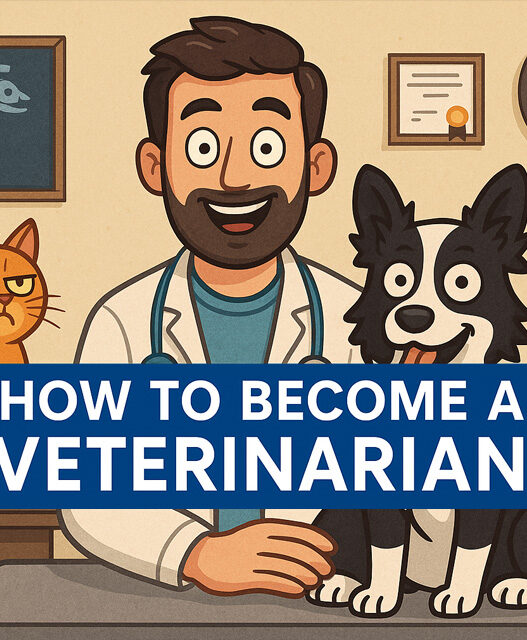As a kid, when I first learned about the butterfly's life cycle, I was instantly fascinated.
Not because of the science, but because of the mystery.
How could something earthbound disappear into a cocoon and emerge winged? It felt like magic.
Metamorphosis. It's a euphonious word for something brutal.
The caterpillar doesn't sleep through the change. It dissolves its body, breaks itself down into nothing, cell by cell, and builds something entirely new from the goo. It's incredible, yes…but I've always felt that the caterpillar is owed some mourning. Because in order to become something else, it had to lose itself completely.
More often than not, that's exactly what physician retirement is like. It's not an ending, not a vacation, but a private metamorphosis. One that very few outside the profession understand.
And one that, if you're not ready for it, will knock the wind out of you.
For many doctors, this moment does not arrive with a gold watch or fanfare. It arrives quietly, with a health scare, a severance package, or simply having had enough.
If you've read enough comments left by the readers of Physician On FIRE, as I have, you start to realize that this loss of identity isn't a fringe experience. It's more common than we think, even among those who retired by design.
We are deeply grateful to the readers and commenters who have lent their stories, their candor, and their wisdom. Their reflections aren't footnotes to the physician, but rather the heart of it.
Here are 11 lessons in the words of physicians who've lived through the reckoning that is retirement. Don't mistake them for advice— they are lifelines.
1. “You are who you are. Only a part of that is what you do.” — Dr. Kirk
Dr. Kirk Crews, a rural family physician who spent over two decades serving the same Montana community, describes the importance of having a life outside of medicine so that you aren't left untethered once you stop practicing.
He especially cautioned against the “brainwashing” we do to ourselves early in our careers, forcing ourselves to accept a “normal” that has no business being normal.
A fellow physician who had quoted a line from Top Gun Maverick, to say that a long career in medicine usually means that doctors are unable to define themselves as anything but doctors.
Dr. Crews replied, “You are who you are. Only a part of that is what you do.”
That may sound simple. It's not.
Medicine asks you to give everything, and many do. But when the giving ends, what's left?
Dr. Crews found clarity through a renegotiated schedule that honored both his professional gifts and personal needs. A few days of practice, a few days of rest, time to carve, paint, hike, fish, and simply be.
He didn't vanish from medicine. He rewrote his relationship with it.
2. “The hospital will not love you back.” — Dr. Bob
Hospitals aren't people. They're systems. And systems don't do loyalty.
Bob's seven-word summation captures what many physicians learn too late: devotion is a one-way street.
When you leave, your inbox dries up, your badge is deactivated, and your chair is quietly filled by someone else without a thank you or backward glance.
Dr. Klaud Miller practiced orthopedic surgery for nearly half a century. But in the end, after years of behind-the-scenes politics, systemic disregard, and administrative sabotage, he walked out of two hospitals without ceremony.
“To be brutally honest, neither hospital could care less about almost 50 years of my work and devotion.”
That's not resentment, it's realism.
Bob's reply is like a bucket of ice water. It stings, but it's true. The system will take everything you have to offer it and forget to even say goodbye.
So the lesson is to only give what you can stand to lose.
3. “I am only worried about who is going to be left to take care of me.” — Dr. Klaud Miller
Dr. Miller's worry isn't personal; it's systemic.
He's not afraid for himself; he's afraid of what's coming. A generation of physicians is exiting the workforce, and not enough are stepping in to fill the void.
Under the pressure of the machine of revenue-focused optimization, the long-memory doctors, the ones who saw the whole person, not just the chart, are slowly disappearing.
According to the Association of American Medical Colleges (AAMC), the U.S. faces a projected shortage of up to 86,000 physicians by 2036. That's not distant, it's just a decade away.
Dr. Miller's comment reflects what many of us feel as we leave our posts. Not bitterness or anger. But fear. Fear that the scaffolding of care is crumbling.
The lesson learned is that passing the torch is no longer as easy as it used to be. While many doctors find a way to move on from medicine, there are still others who get held hostage by a system that's struggling to maintain and grow its workforce.
4. “Nobody says on their deathbed, ‘I wish I spent more time at the office.'” — Dr. Steven Smith
Dr. Steven Smith relays his experience working in corporate medicine, and his comment will resonate with anyone who understands the value of investing time in oneself.
He spent more than three decades climbing, achieving, and performing, and then walked away, largely unacknowledged.
But he was able to make peace with it because he had realized early on that identity cannot be built on work alone.
“Do it now in your 20s and 30s. Advance all skillsets. At 60, you will be glad you took the time for you,” he wrote.
That's not advice for early retirement, that's advice for life.
Don't become a physician who wakes up retired and realizes that they never actually lived. Foster hobbies, friendships, and passion. Build an identity that exists beyond your badge.
5. “It's a challenge to switch fields, but I don't have any regrets.” — Dr. Jamie Moore
After seventeen years in emergency medicine, Dr. Jamie Moor stepped out of the trauma bay and into photography.
Not as a weekend hobbyist, but as a serious entrepreneur.
She photographed a book, launched a brand, and learned the ins and outs of marketing and business from scratch.
“Medicine prepared me well for learning new skills, but there is a lot to learn, and it takes time,” she added.
Her words echo the resilience physicians carry with them. It takes a lot to force us to give up because the entire length of our career is set up to constantly test and try us.
Still, reinvention isn't easy, but it's possible. Sometimes, even necessary.
The lesson then is that retirement doesn't have to mean disappearing to some coastal city; it can mean whatever you want it to.
6. “I'm not alone.” — Dr. Ted Burningham
Retirement is often painted as a personal journey, but in truth, it's a collective reckoning.
Dr. Ted Burningham's comment carried the weight of the realization that the unease, the ambivalence, and the quiet grief of leaving medicine are not flaws. They are features of this career path.
We spend so long pretending we're immune to transition that we forget its emotional toll is nearly universal.
But hearing someone else say they feel the same? That's when healing begins. That's when retirement starts to feel less like exile and more like arrival.
You're not the only one. You never were.
7. “Ageism is real.” — Mamadoc
Mamadoc's experience isn't one of burnout or wanderlust.
It's about being quietly pushed aside by patients, administrators, and even peers. And this happened not just in a faceless institution, but also in her own group practice.
For many physicians, retirement isn't an empowered decision planned to a tee. Sometimes it's an unwelcome consequence of ageism, illness, or slow institutional erosion.
And when that happens, the grief cuts deeper because it wasn't your call. It was theirs.
Retirement, when chosen, can be liberating. When imposed, it can feel like exile. Both are real, and both deserve to be spoken about aloud.
8. “I have done enough and it has been wonderful, but it is now done.” — Dr. Kirk Crews
Something about the stillness and silence post-retirement feels louder than an emergency room on the 4th of July.
For years, your work dictated your worth, your presence, and your every hour.
And then…nothing. The charting stops, the consults fade, and in that silence, the real questions start to surface.
Who am I now? What's left to do now?
Dr. Crews answered those questions not with panic, but with clarity. He hadn't been discarded; he had completed something.
His words don't ache with loss but are a message of peace.
They remind us that retirement was created to offer precisely that: peace. We just need to be ready to receive that gift, take the chance to say, “It was enough,” and mean it.
9. “It should be a time of contentment.” — Dr. Diane
Not all physicians enter retirement with existential dread.
Some, like Dr. Diane, arrive gently. She doesn't question the past; she honors it. She doesn't fear the future; she welcomes it.
The key is to acknowledge everything you've done, even if the system does not. Not for the sake of arrogance or pride, but because you alone know the true depth of your sacrifices and triumphs. So it's you alone who can offer yourself that much-needed pep talk when all's said and done.
“If you retire knowing you contributed and did the best you could, it should be a time of contentment,” she wrote.
That kind of peace doesn't come from luck. It comes from alignment—a career lived with boundaries, reflection, and the occasional no. It's a reminder that retirement isn't always about repair or the next big thing. Sometimes, it's about rest.
10. “At some point, nothing matters other than health and family.” — A
Dr. Anonymous's comment doesn't stem from regret; it's a sobering and frankly, stark realization.
Whether their retirement was planned or abrupt, the takeaway wasn't financial or professional; it was human.
The long hours, the accolades, the relentless drive—none of it carries the same weight when your body slows or the people you love need you more than your patients ever did.
And in that shift, something changes. The noise recedes. What's left is startlingly simple: your health, your loved ones, and the time you have left.
Retirement isn't a step down. It's actually a narrowing in. And if you're paying attention, you don't have to wait until the very end to start living like that's true.
We also wrote about forced retirement back in June: Where Do Physicians Go When They Get Sick?
11. “I wish I had realized all of this 30-plus years ago, instead of just accepting the narrative of not-enough.” — Dr. Kim
“Doctors get treated worse than people with first names.”
That line, shared by Dr. Crews, struck a nerve. Dr. Kim responded with appreciation and recognition.
Her words reflect that so many of us in medicine realize too late— if at all. The striving never ends, the rules are rigged from the very beginning, and we're just stretching ourselves thin to meet a standard that will always remain elusive. And that being a good doctor often means being an invisible person.
But retirement, in its best form, offers a reset. It gives you the first real chance to reclaim your name. Not Dr. So-and-So, but Kim. The person. The one who gets to decide that “enough” was always enough.
This is the quiet revolution of letting go. Not to escape medicine, but to finally step outside the narrative and write something new.
No two exits from medicine look alike. Some walk away in triumph, others slip out in silence, and still a few are pushed.
But what the Physician on FIRE community has shown us is this: the end of a medical career isn't the end of the story.
If we're lucky, and if we choose not to disappear entirely, retirement can be a chance to reclaim something that still matters. Piece by piece, like a song remembered after years of forgetting.
The comments don't lie. They speak with the worn-out clarity of people who've been in the trenches, seen the system from the inside, and decided to tell the truth.
To those who have contributed their stories: thank you. Your honesty lights the path for those who are still searching in the dark.



















